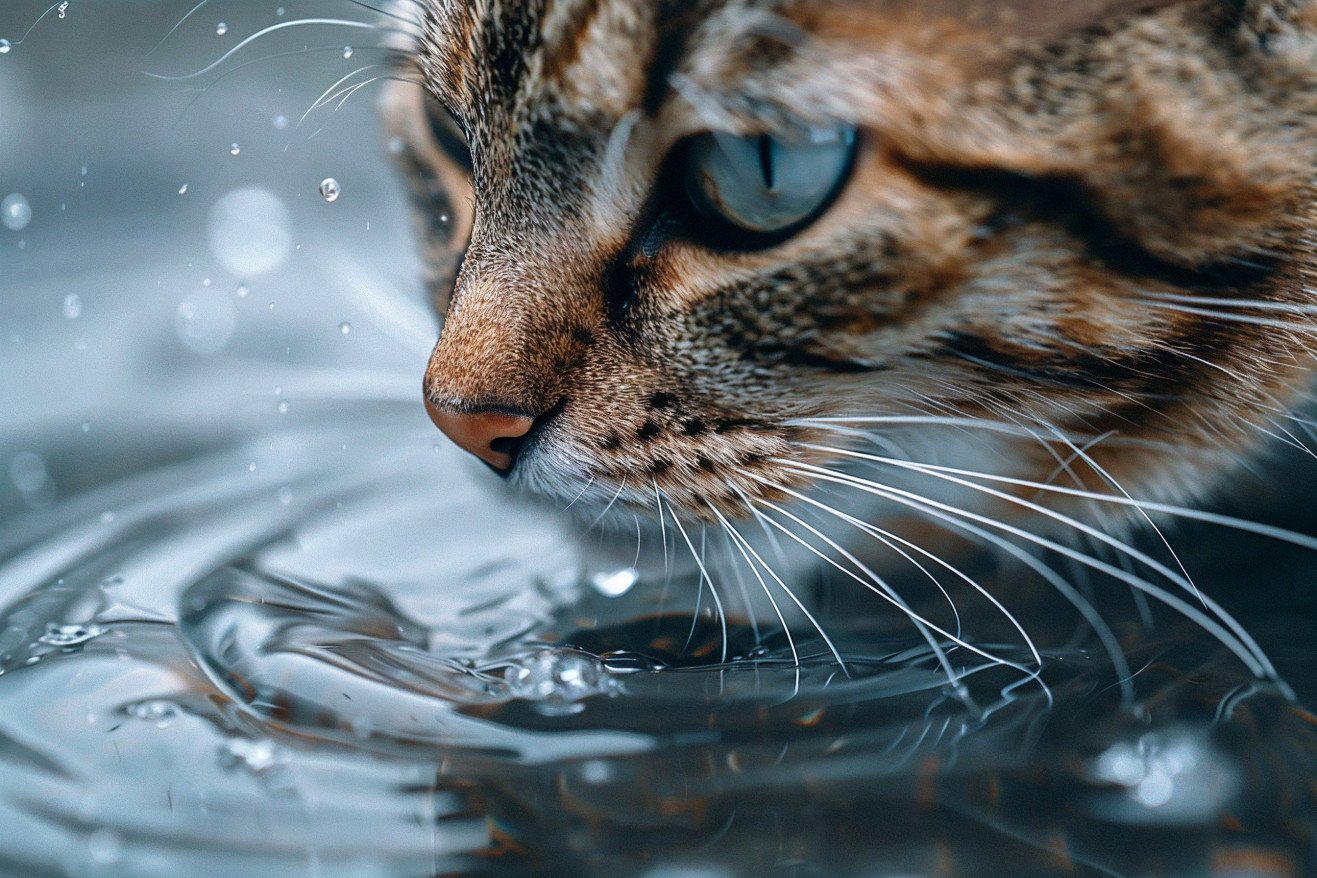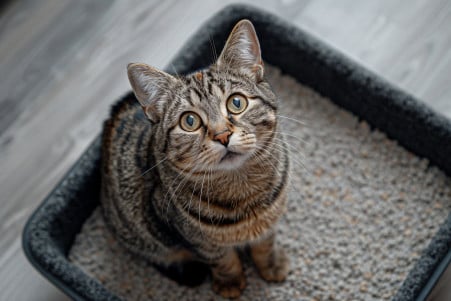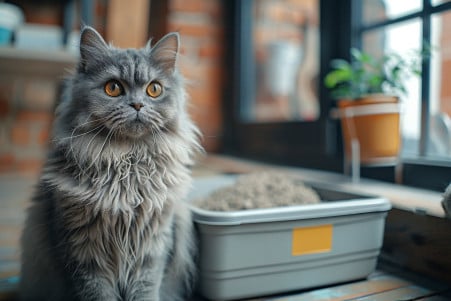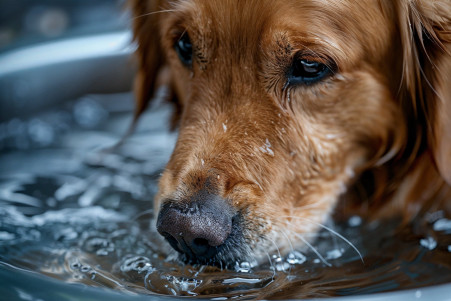How Long Can Cats Go Without Water? The Science Explained
29 March 2024 • Updated 29 March 2024

While cats are known for their independence, they still need water to survive. So how long can they really go without it? On average, cats can survive for 3-4 days without water, but this time frame is not ideal and will leave them extremely dehydrated and susceptible to health problems like kidney failure and organ damage. Water is necessary for a cat's survival.
To better understand why cats can only go without water for a short amount of time, we will look at physiological research and veterinary knowledge of cats and their hydration requirements. This will help you understand how to make sure your cat is always getting enough water ahead of time, which will help them live a longer, healthier life as your beloved pet.
How long can cats survive without water?
Feline Hydration Needs: What the Research Says
Cats are obligate drinkers, which means that they need to consume water to survive. According to a study cited by Uahpet, the average cat needs to consume between 3.5 to 4.5 ounces (100-130 ml) of water per 5 pounds (2.3 kg) of body weight per day. This water is necessary to help the body with a variety of functions, including digestion, circulation, excretion, and temperature regulation.
That said, cats have a low thirst drive compared to other species, as explained in a Vet Focus article. This means that they are more likely to become dehydrated if they don’t have easy access to water or if the water isn’t appealing. In addition, cats are made up of 65-75% water, according to a source cited by Cat Cave Co, so even a small loss of water can lead to dehydration.
There are many factors that can affect how much water a cat needs to consume in a day and how likely they are to become dehydrated. A cat’s age, activity level, diet, and any health issues they may have can all impact their hydration levels. For example, a study cited by Cat Cave Co found that cats that eat dry food may not be able to consume enough water to meet their daily needs since dry food only contains 6-10% moisture.
Understanding these factors is important if you want to make sure that your cat is getting the water they need to be healthy. It’s also important to understand the signs of dehydration.
How to Tell If Your Cat Is Dehydrated
Knowing how to tell if your cat is dehydrated is important because dehydration can quickly become life-threatening. Signs of dehydration in cats can include lethargy, weakness, and lack of energy, according to Rawz Natural Pet Food. Other signs include dry, sticky gums and skin tenting, which is when the skin doesn’t snap back into place after being gently pulled up, according to PetMD.
More serious signs of dehydration in cats can include sunken eyes, a dry nose, and a loss of appetite, according to Wellness Pet Food. In severe cases, dehydration can lead to rapid breathing, an increased heart rate, and neurological symptoms that require immediate medical attention. It’s important to know the signs of dehydration so that you can recognize them quickly. Dehydration can quickly become life-threatening if it’s not treated.
Causes of Dehydration in Cats
There are many reasons why a cat might become dehydrated. Some of these reasons are medical, while others are environmental. One of the most common reasons for dehydration in cats is a lack of access to water. In fact, according to Uahpet, cats have a lower thirst drive than many other animals, which means that they are more likely to become voluntarily dehydrated if their water source isn't appealing or easy to access.
Medical conditions like diabetes, kidney disease, and hyperthyroidism can also make cats more susceptible to dehydration. This is because these conditions can cause the body to lose more water than it should, according to Dutch. Meanwhile, vomiting, diarrhea, and increased urination caused by other medical conditions can also lead to a loss of fluids and dehydration.
Environmental factors, such as hot weather, exercise, and low humidity, can also increase a cat's need for water and make them more susceptible to dehydration, according to the Animal Emergency Center of Tulsa. Other factors that can impact a cat's hydration levels include old age, stress, and dental issues that make it difficult for the cat to drink.
It's important to treat the underlying cause of dehydration since simply giving the cat more water may not be enough to solve the problem. Preventative measures and early treatment are the best ways to ensure that your cat stays hydrated and healthy.
How to Prevent and Treat Dehydration in Cats
To help cats drink more water, pet owners can place water bowls in different areas of the house, as suggested by Purina. In addition, some cats may be more likely to drink if they have access to a water fountain or if their water is flavored with ice cubes, according to Bored Panda. Pet parents can also help their cats stay hydrated by feeding them wet or raw food.
Pet parents can also help ensure their cats stay hydrated by keeping an eye on their water intake and the amount of urine and feces in their litter boxes, according to WagWalking. If cats do become dehydrated, they may need to be hospitalized and given fluids intravenously or subcutaneously to prevent or reverse organ damage.
Regardless of whether dehydration is caused by a medical issue or another problem, it's important to address the issue to prevent it from recurring. Pet parents can also help ensure their cats stay hydrated by making sure they have access to clean, fresh water and taking other steps to encourage them to drink. This can help cats stay healthy and avoid the complications of dehydration.
Why Hydration Is Important for Your Cat’s Health and Lifespan
Cats need to be properly hydrated to support their body’s various processes and systems. If your cat is dehydrated over a long period of time, it can cause a number of health issues, including urinary tract problems, kidney disease, and organ failure. Making sure your cat is getting enough water can help prevent or manage certain health issues and support your cat’s overall lifespan.
This is especially important for older cats, kittens, and cats with health issues. Making sure your cat is getting enough water is an important part of being a good pet parent and making sure your cat has the best life possible.


